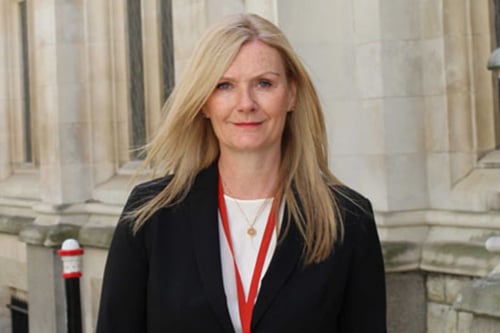

Insurance fraud is a complex and ever-changing area with new risks further complicating the capacity of law enforcement, insurance companies and the general public to spot and prevent fraudulent activity. One thing that has become clear in recent years, however, is the need for collaboration between these sectors and the benefits that such collaboration can bring. In a recent interview with Insurance Business, Chris Andrew from BAE Systems, highlighted that between the Insurance Fraud Bureau (IFB) and the Insurance Fraud Enforcement Department (IFED), which is hosted by the City of London Police, the UK has crafted a robust infrastructure of collaboration which is capable of continuing to evolve as the market changes.
Earlier in June, it was announced that Detective Chief Inspector (DCI) Edelle Michaels (pictured) had been appointed as the new head of the IFED and would be bringing with her more than 27 years of policing experience to this crucial role. Since its creation in 2012, the IFED has achieved some 524 convictions and 188 custodial sentences, with more than 900 arrests made in the last eight years. Key among her ambitions in this new role, Michaels is looking to continue the good work that the IFED has undertaken since its inception and to maintain and improve relations with its key stakeholders.
“[This will also mean looking] to make new relationships,” she said, “and I am very keen to promote IFED nationally, especially among all the other forces, thus raising our profile which will improve our intelligence opportunities. And I want to identify more proactive opportunities as well. A lot of our investigations tend to be very reactive but there are opportunities to be proactive and do some covert work to maybe target the main players rather than the low-hanging fruit and, as a result, disrupt those organised crime groups that are obviously prevalent in this sector.”
Insurance fraud has not taken a back-seat during the pandemic and mere days after news of Michaels’ appointment the IFED reported on the conviction of a Wakefield resident for an exaggerated injury claim worth a potential £90k. With support from Aviva, which recently launched an online scam reporting service, the fraudster in question was sentenced to 20 months imprisonment, suspended for two years, and ordered to complete 300 hours of unpaid work. Looking at the fraud sector, Michaels stated that she liked the idea of being part of such a dynamic and fast-moving team.
“We are making a difference to members of the public and we are working closely with our stakeholders and that really appeals to me. I am very grateful to my predecessor, DCI Andy Fyfe, as I know I have inherited a fantastic team. I know I have big shoes to fill,” Michaels said. “I am looking forward to getting to know and work with our stakeholders and I’ve had a very warm welcome from the ABI and IFB so far. And [I look forward] to working with a fantastic team, who have already got a proven track record, and unleashing their full potential and exploring other avenues of how we’re going to tackle insurance crime.”
DCI Michaels is coming into her new role at an interesting time, with the coronavirus pandemic still unravelling and the lockdown in the UK slowly lifting and she noted that the lockdown has impacted intelligence sharing and intelligence submissions in terms of calls to Cheatline. COVID-19 has had an impact on certain types of crime and the IFED is seeing an increase in relation to fabricated lost, exaggerated genuine loss, ghost broking, contrived motor accidents, misrepresentation or non-disclosure and staged motor incidents. This has highlighted the need for every insurance partner to keep working together to ensure that intelligence sharing is continued and evolved.
“I think it’s crucial that we’re working together,” she said. “In response to our fighting of insurance fraud, we need to be continuously looking for new ways of gathering intelligence and then disseminating it while it’s still current. So, we need to ensure that we’re sharing intelligence which will allow us to identify emerging trends early so we’re equipped to deal with it. And this allows us to then warn the public and make them aware of how they can protect themselves.”
